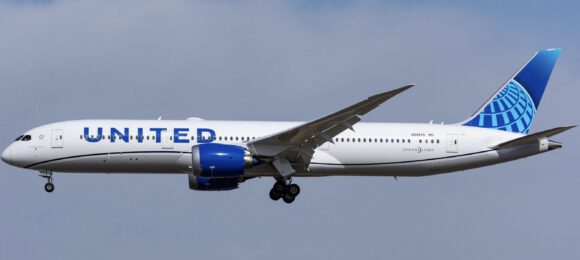United Airlines shares fell 10% in early trading after their CEO, Scott Kirby, revealed a new strategy for the airline that includes capacity growth and matching fares with low cost carriers. “Half our revenue approximately comes from customers that are mostly shopping on price and we cannot ignore half of our revenue and we can’t let our low-cost carriers have price advantages in our hubs,” said United President Scott Kirby.

This has set of a panic among industry analysts and shareholders, as they understand that capacity restraint by the Big 3 plus Southwest have served well to maintain high yields and high profitability. United’s plans to expand capacity by 4%-6% annually through 2020 and matching low fare carrier pricing will likely result in fares being matched by competitors in each market. That will likely result in a decrease in yields industry-wide, returning to the pre-consolidation fare levels and lower profitability.
United needs to decide what it is. The carrier that introduced an all new Polaris International Business Class and launched an “invitation only” full dining restaurant at Newark Airport catering to business travelers apparently now also wants to compete with low fare carriers on price. Analysts are rightly recognizing that United cannot be all things to all people.
With half of United’s customers competing on price, which direction should the carrier take? Their current approach enabled the company to beat 4th quarter analyst projections, and the carrier is profitable. So why change?
CEO Oscar Munoz statements at the earning call did not impress analysts. “I think it’s important to know that what we have in front of you is a pretty darn good plan. I think the growth aspect of it as it’s been outlined, and the component pieces of it, and the reasons why, and the profitability therein, I think are important and doable.”
Several analysts questioned the strategy, but wondered when a transition from low to high margins would occur, and how this will translate to a higher share price, since airline stocks have traditionally fallen during times of industry overcapacity.
The fear of an industry-wide fare war being initiated by United resulted in American and Delta each being down more than 5% in early trading. It is clear that United’s new plan has spooked airline investors, and likely for good reason.
The Bottom Line
While consumers can benefit from lower fares, United appears to be the first member of the US major airline oligopoly to panic over LCC competition and both increase capacity and reduce fares. The question is now whether American,Delta, and Southwest will be forced to match fares and increase their own capacity to maintain revenue levels, and send US domestic airline yields and profitability into a downward spiral.
Views: 1



